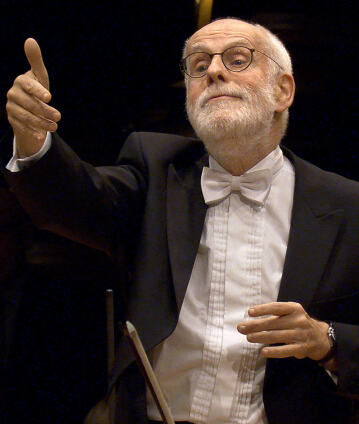Ton Koopman conducts Bach’s Mass in B Minor

The B minor Mass is Johann Sebastian Bach’s legacy to vocal music: a cosmos of all the forms and styles that make his sacred works so rich. There are arias of dance-like lightness as well as austere Renaissance singing, ingeniously constructed fugues and jubilant choruses. In this concert the work is performed under the baton of Ton Koopman, a conductor, organist and harpsichordist who is one of the great Bach interpreters of our time.
A Protestant kantor sets the Latin text of the Catholic liturgy of the Mass to music – and in doing so, creates a timeless interdenominational work. The Mass in B Minor is not only Johann Sebastian Bach’s final vocal work, it is also his “opus ultimum”, his musical legacy. In this large ensemble Mass setting, whose gestation lasted decades and which combines rewritten movements with parodies of existing pieces of music, Bach brings together everything that distinguishes his composing: a variety of musical forms and styles, contrapuntal density and concertante lightness, objective contemplation and subjective emotional language. From the first desperate scream-like cries of Kyrie of the chorus to the final petition, “Dona nobis pacem”, which begins meditatively and closes with festive rejoicing accompanied by trumpets and drums, Bach presents the whole cosmos of Baroque music making in 27 musical numbers.
It is probable that Bach himself never heard a complete performance of his Mass. It was too long even for a large-scale ceremonial service. The great age of the B Minor Mass began in the 19th century as part of the Bach revival initiated by the Berlin Sing-Akademie. The Berliner Philharmoniker performed the piece for the first time in 1885 to mark the 200th anniversary of Bach’s birth. From the Second World War onwards, there was a performance with one of the major Berlin choral societies almost every year until 1985. However, the orchestra has only programmed the work two times since then: in 1999 under the direction of Claudio Abbado and in 2006 with Sir Roger Norrington.
This season, Ton Koopman, who made his debut with the Philharmoniker in 2010 conducting works by Bach and Haydn, performs the B Minor Mass together with the Philharmoniker and the RIAS Kammerchor. Koopman, who is not only a conductor but also an organist and harpsichordist, is considered one of the great specialists in the work of the Leipzig Thomaskantor. When conducting, Koopman sees himself as “the first among equals”, however, he has the reputation of being a hard taskmaster when it comes to performing Bach’s music to his satisfaction. His credo: “We are privileged to perform beautiful music by a person who is more genius than we.”
© 2017 Berlin Phil Media GmbH
Related interviews
Artists
Our recommendations
- Christian Thielemann conducts Tchaikovsky’s “Pathétique”
- Ton Koopman conducts Bach
- Lahav Shani and Francesco Piemontesi
- Season opening 2023: Kirill Petrenko conducts “Ein Heldenleben”
- Kirill Petrenko conducts Smetana’s “Má vlast”
- Kirill Petrenko conducts Beethoven’s Ninth Symphony at the Brandenburg Gate